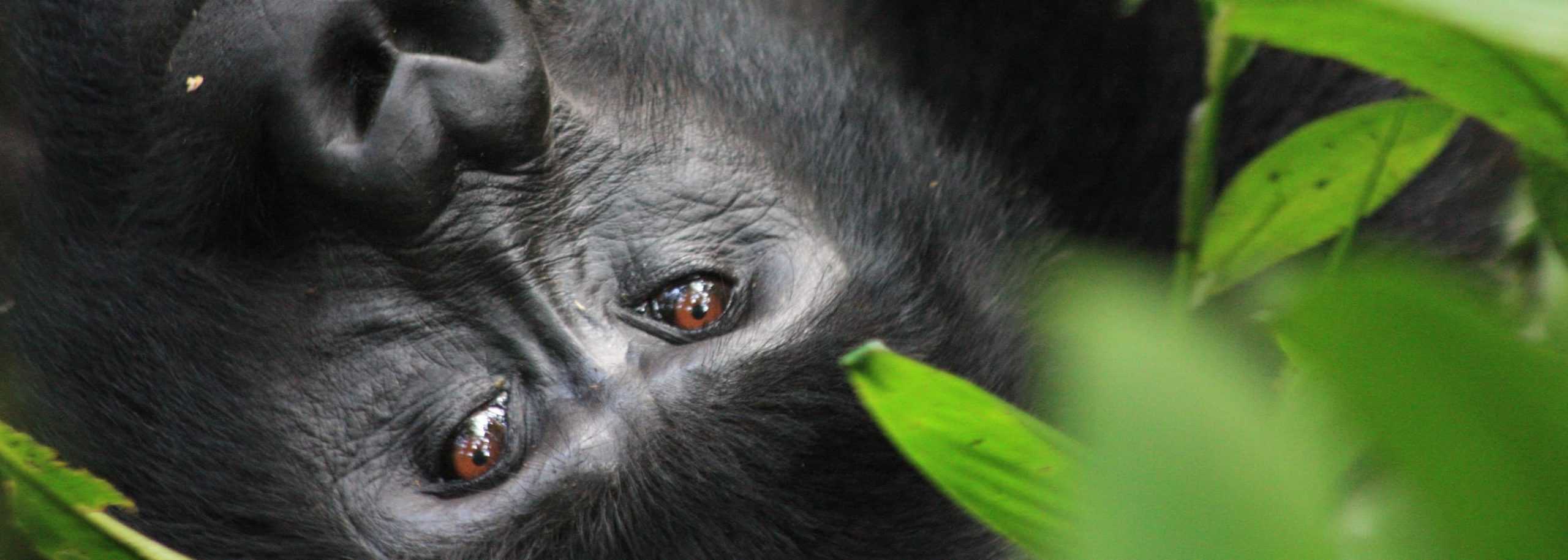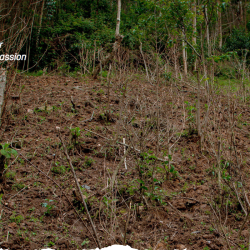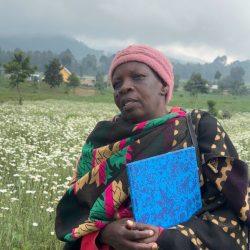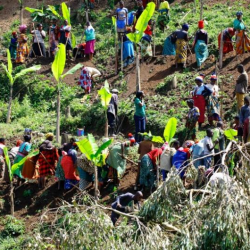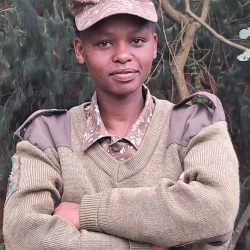Nothing Can Separate Us from the Vanishing Treasures Project
Blog | 20/12/24
Habarurema Emmanuel and Afia Maniragaba are a happy hard-working couple living in Manjari village of Gitenderi parish in Nyarusiza Subcounty bordering Mgahinga gorilla national park in Uganda.
Having participated in the project inception meetings and trainings, Emmanual and Afia reveal that they learned a lot and acquired so much knowledge including the importance of proper waste management, proper sanitation and hygiene practices, land use management and soil conservation among others.
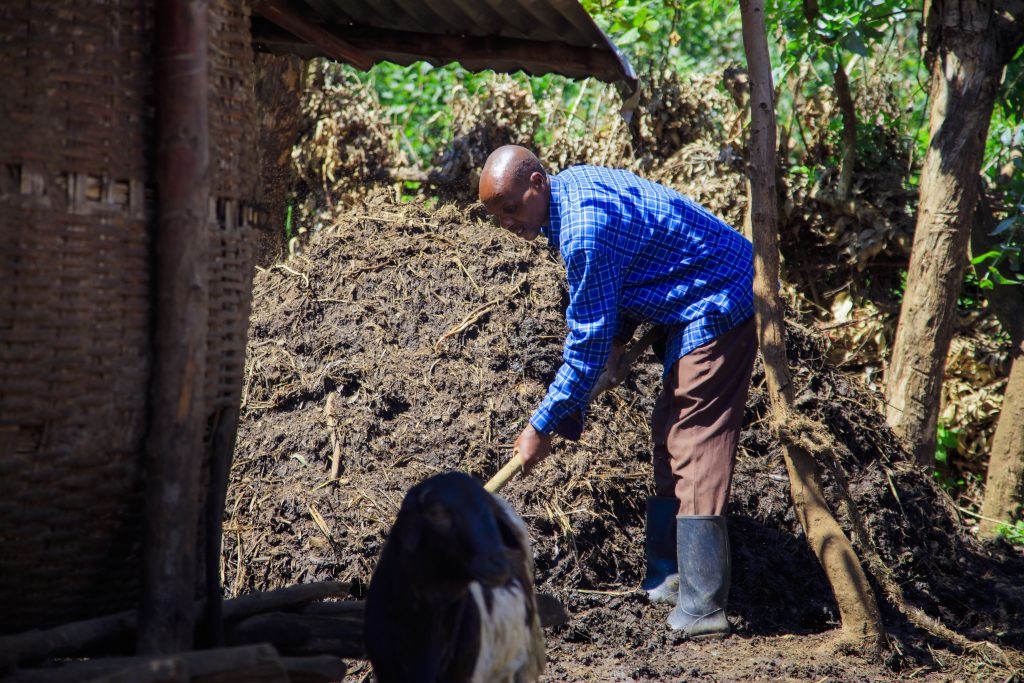
“What we found very instrumental is the use of animal manure and urine on the farms to improve soil fertility and proper waste management to ensure a clean and healthy environment – home, gardens and the entire surrounding” Emmanuel says. Emmanuel adds that “to be honest we never separated waste, we just used to collect everything and dump it in the gardens. No wonder they were always filthy and infertile”.
After the training, Emmanuel and Afia started implementing what they had learned. They put up two sacks for waste, educated their children about proper waste management practices and embarked on collecting all plastics and polyethene from their gardens and compound into the designated sacks. A very clean and welcoming compound and health looking gardens is testament to this.
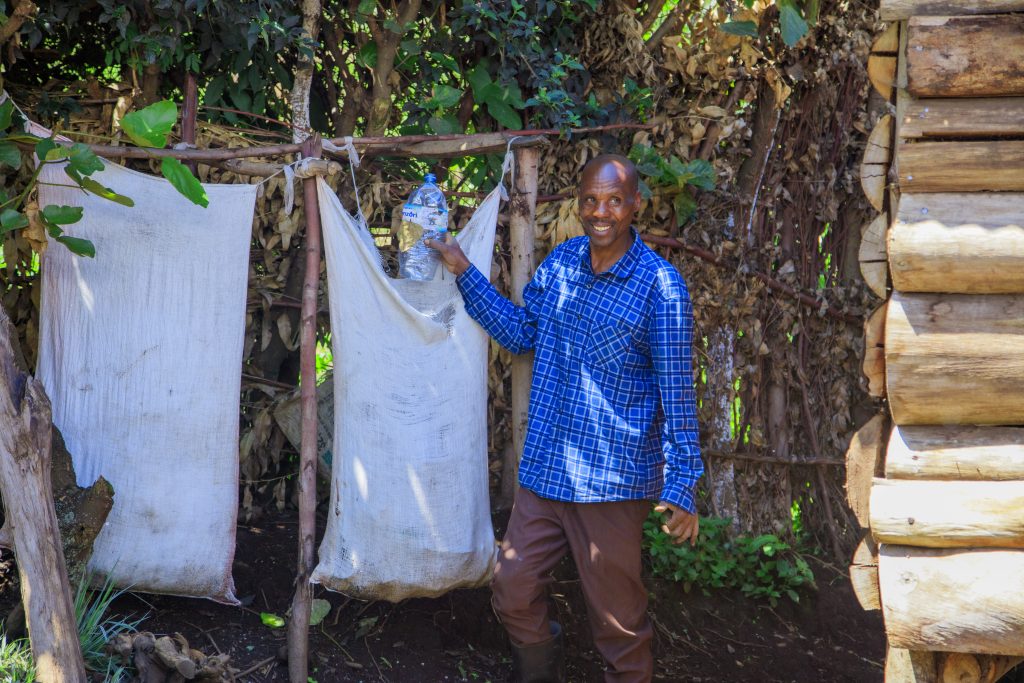
Interestingly, the couple decided to apply different interventions in their gardens. Afia uses animal dung from their sheep while Emmanuel harvests the urine and applies it on his onions as pesticides and in the soil as fertilizer.
Urine, an Excellent Fertilizer and Pesticide
According to Kenneth Kabebasiza, the Project assistant Vanishing Treasures, urine is now a “hot” commodity in the community because of its benefits – thanks to the Vanishing Treasures project for the education and awareness creation! Twenty liters of animal urine costs 20,000Ugx ($5.5), while 20 liters of human urine costs 50,000Ugx ($13.8). Kenneth explains that people find urine user friendly compared to artificial pesticides. Because people lack adequate knowledge on their use, they use the wrong measurements that end up burning the crops. “Urine on the other hand is safe to use, there is no overdose of it. It serves both as a fertilizer and a pesticide” Kenneth says.
“I’ve diligently been applying urine on my onions and in the soil. I am optimistic that I will harvest more this season because my crops already look healthier than the last seasons” Emmanuel says. Emmanuel adds that from experience he has observed that onions sprayed with urine grow bigger in size because they’re not attacked by pests that destroy them when they’re still young.
Gardens were just dumping sites to us
“We used to apply manure on the farms before but not adequately because we lacked the knowledge, for example we never left it to decompose, we would just take it raw directly to the gardens. Gardens were just dumping sites for us!” Afia says.
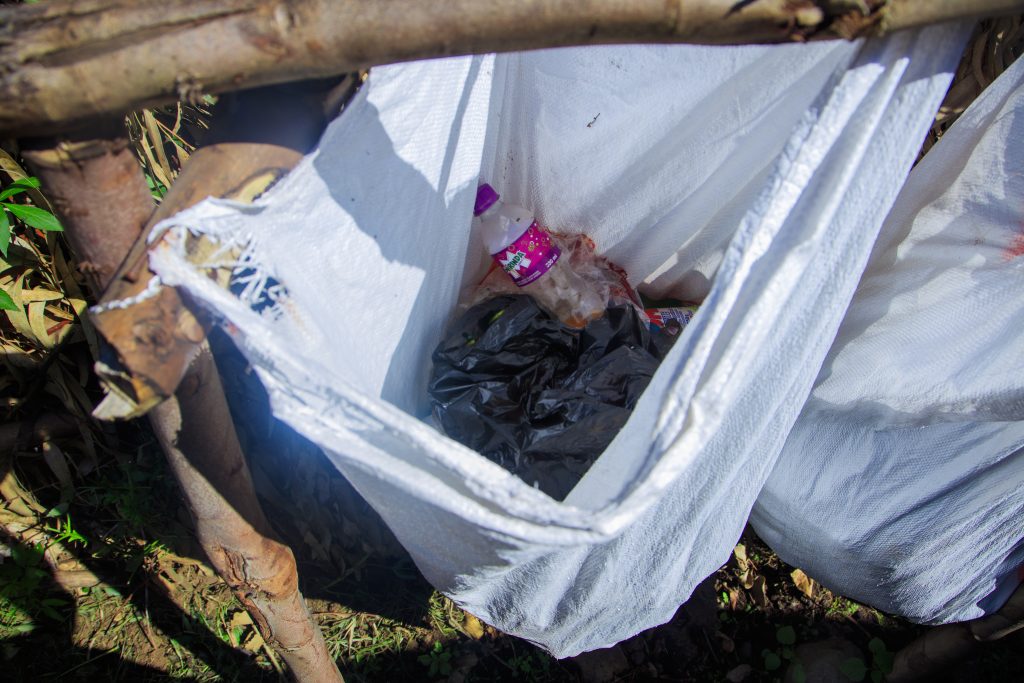
However, after the training Afia says she intentionally removed all waste including polythenes and plastics from the gardens, she then applied compost manure and animal dung.
“And wow my gardens have tremendously changed! They look so healthy, and the harvest is promising” Afia says. She adds “I think I will harvest a little more than last season. The potatoes already look bigger and more on the plants”.
Afia revealed that she has so far harvested 3 bags about 130kgs which she had never done before. It was always 1 or half a bag or Irish. Afia attributes this to the knowledge acquired and applied, “Nothing can separate me from these new practices – I will take them to the future with or without the Vanishing Treasures Project because they are beneficial to us! Afia says.
